Have you ever felt lost or overwhelmed by deep and thought-provoking questions about life? Are you having an existential crisis? Curious to know how to deal with them effectively? Read on!
What is an existential crisis?
An existential crisis is a period of intense questioning and uncertainty about the meaning and purpose of life. It’s a feeling of being lost or disconnected from the world around you. It’s when you start to wonder if there is more to life than what you’re currently experiencing, or if there’s any meaning to your existence at all.
According to psychologists, an existential crisis is primarily a variety of inner conflicts. It is marked by a lack of purpose and meaning in life and is emboldened by difficult emotions like –
- Distress
- Misery
- Emptiness
- Hopelessness
- Burnout
- Anxiety
- Depression
Related: What is The Meaning of Life: Is It Life Itself?
These negative emotions and the lack of meaning makes us question ourselves and our existence which makes us feel lost and confused. However, as the questions can be really deep, we are often unable to find the answers leaving us feeling more confused and stressed. When these emotions are left unaddressed, they can negatively impact how we navigate through life.
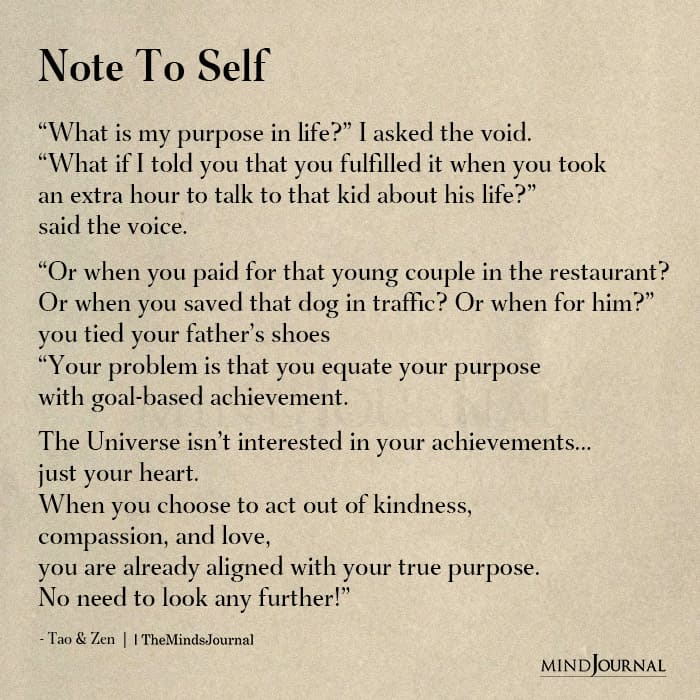
However, there is a sliver of light even in this existential pain as it can encourage us to find purpose and meaning in life by rediscovering our values. It can help us become more self-aware and build the life we want to live. “Existential pain is really a message to us indicating that we are about to grow and heal,” explains a 2005 study.
But it is also important that we “have the courage to confront the loss of meaning and security,” when experiencing an existential crisis, believe researchers.
Types of existential crises
There are several types of existential crises examples that someone can experience –
1. Identity crisis
This type of crisis is focused on questions related to who you are, and what makes you unique. It can be triggered by changes in your career, relationship, and environment, which can lead to feelings of confusion, self-doubt, and anxiety.
2. Professional crisis
A professional crisis may arise when you feel unfulfilled or disconnected from your work, or when you question the purpose and value of your career.
3. Spiritual crisis
A spiritual crisis can occur when you question your beliefs, values, or faith, and may experience feelings of disillusionment or confusion.
Related: Are You Experiencing A Spiritual Crisis? 19 Signs Of Spiritual Emergency And What To Do
4. Relationship crisis
A relationship crisis can arise when you question the meaning and purpose of your relationships or feel disconnected from others in your life.
5. Aging crisis
An aging crisis can occur as you age and begin to contemplate your own mortality and the meaning of life.
It’s worth noting that these types of crises are not mutually exclusive, and different people may experience multiple types of existential crises at the same time.

Am I having an Existential crisis?
If you’re wondering whether you’re experiencing an existential crisis, there are a few common signs to look out for.
Here are some indicators that you might be going through it –
- Asking deep questions about the meaning and purpose of life. For instance, “What is the meaning of life” or “Why am I here?”
- Feeling lost or confused about your direction in life.
- Questioning your beliefs and values.
- Feeling a sense of emptiness or a lack of fulfillment, even when things seem to be going well.
- Feeling like you’re just going through the motions of life.
- Having trouble making decisions or setting goals for yourself.
- Feeling stuck or unmotivated, not sure how to move forward.
If you can relate to most of these signs, it’s possible that you’re going through an existential crisis. It’s important to remember that this is a normal part of the human experience, and that can be an opportunity for growth and discovery.
Existential Anxiety vs Existential Depression
If you’re feeling lost and questioning the meaning and purpose of life, you may be experiencing an existential crisis. But what if those feelings of uncertainty and doubt become overwhelming, and begin to take a toll on your mental health? This is where the line between existential anxiety and existential depression becomes blurred.
Let’s explore the difference between the two.
Existential anxiety
It is a feeling of uncertainty, fear, and unease that can arise when you contemplate the meaning and purpose of your life. It can be accompanied by feelings of restlessness, dread, and a sense of being lost or adrift. Some common triggers of existential anxiety might include questions like –
“What am I supposed to do with my life?”
“What is my purpose?”.
Existential depression
It is a deeper feeling of sadness, hopelessness, and despair that can arise when we grapple with the same deep questions about meaning and purpose. It can be accompanied by feelings of emptiness, disconnection, and a sense of futility. Some common triggers of existential depression might include feelings like –
“What’s the point?”
“Does anything actually matter?”
Related: Existential Depression: Are You Hurting, Trailblazer?
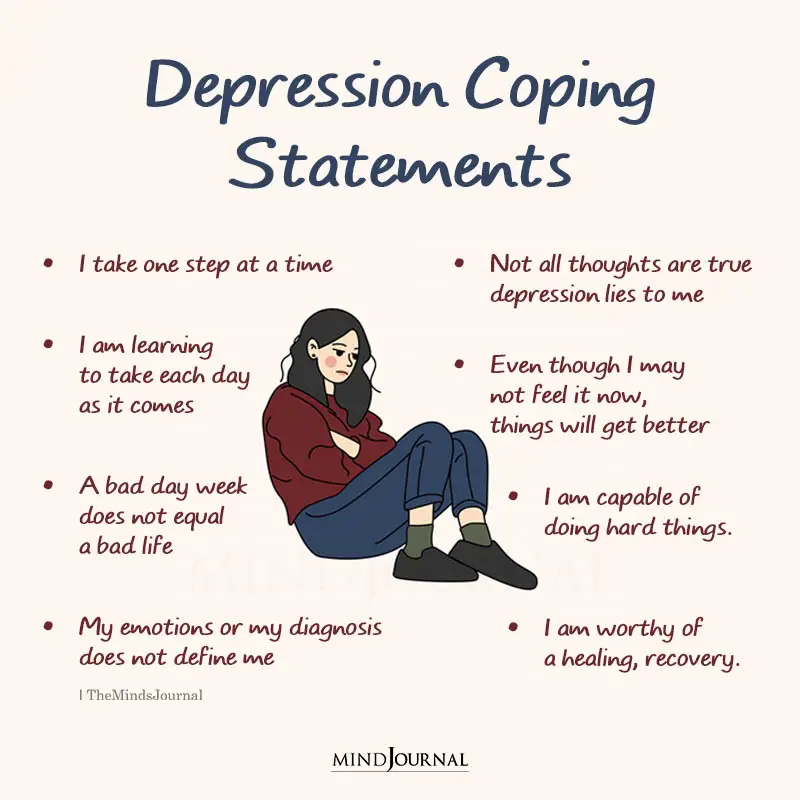
Both existential anxiety and existential depression can be difficult to manage and may require professional support. A therapist or counselor can help you identify the underlying causes of these feelings, and develop coping strategies to manage them.
8 effective ways to deal with an existential crisis
Dealing with an existential crisis can be a challenging and sometimes painful experience. If you’re wondering how to deal with an existential crisis, then here’s how to get started –
1. Acknowledge your feelings
The first step in dealing with it is acknowledging your feelings and allowing yourself to experience them. It’s okay to feel lost or uncertain about the meaning of life, and by acknowledging these feelings, you can begin to work through them.
2. Reflect on your values
It can be difficult for you to acknowledge your feelings but you can take some time to reflect on your personal values and what matters most to you. This can help you gain clarity on your priorities and goals, and may help you find a sense of purpose and meaning.
3. Cultivate gratitude
Practicing gratitude can help shift your focus from what’s lacking in life to what you’re thankful for. Consider starting a gratitude journal or making a daily list of things you’re grateful for, talking to a friend can help you clear your head.
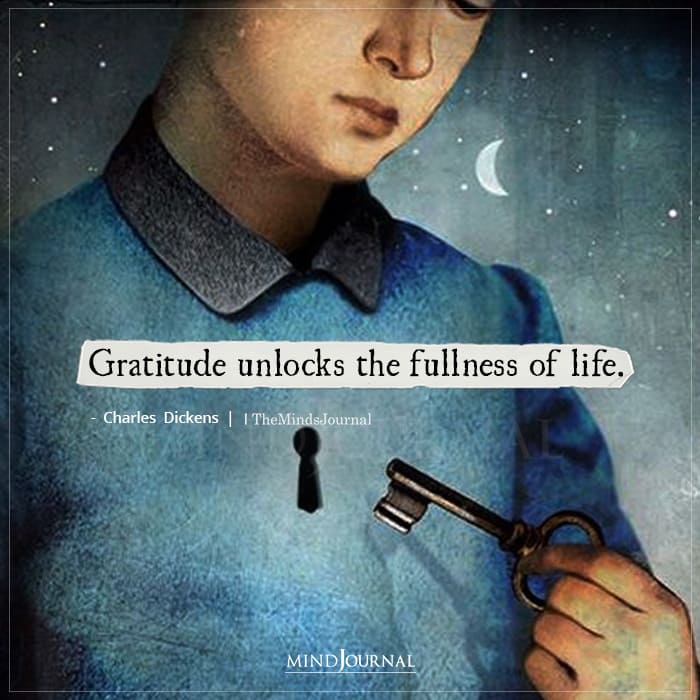
4. Practice mindfulness
Mindfulness practices, such as meditation, can help you become more present and grounded in the moment, reducing anxiety and helping you focus on what matters most in the here and now.
Related: How Mindfulness Can Improve Your Overall Mental Health
5. Practice self-care
Taking care of yourself both physically and mentally can be an important part of managing it. Make sure you’re getting enough sleep, exercise, and healthy food, and consider activities, such as meditation or yoga that help you relax and reduce stress.
6. Connect with others
Connecting with others who share your interests and values can be a helpful way to find a sense of community and support. Consider joining a group or organization that aligns with your values, or reaching out to friends or family members for support.
7. Engage in creative activities
Creative activities such as writing, painting, or music can help you tap into your inner thoughts and emotions, allowing you to explore your feelings in a productive and positive way.
Related: Creativity Is More Than Just Coming Up With Ideas
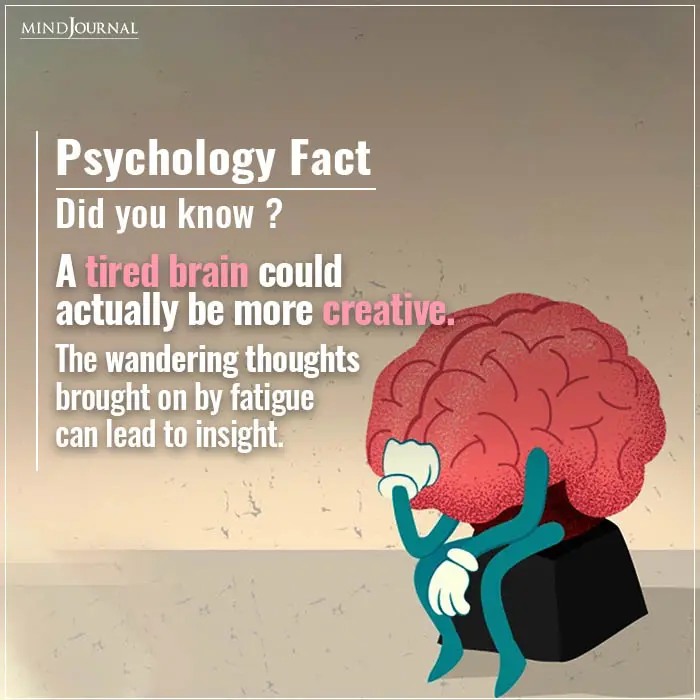
8. Seek support
Talk to a trusted friend or family member, or consider seeking the guidance of a mental health professional who can help you work through your feelings and develop coping strategies.
All these steps will not necessarily be similarly effective for each individual to overcome an existential crisis. But it definitely gives you an overview of how to deal with it. The process of overcoming an existential crisis can be difficult and painful, but it can also be an opportunity for growth and self-discovery.
By reflecting on your values and priorities, you can get out of an existential crisis with a deeper understanding of yourself and the world around you.
Frequently Asked Questions (FAQs)
1. Is the existential crisis a mental illness?
No, it is not a recognized mental health condition. It’s not part of the Diagnostic and Statistical Manual of Mental Disorders (DSM-5) – a recognized medical handbook health care providers rely on when trying to diagnose mental health disorders.
2. What are the 5 components of an existential crisis?
It is divided into 3 main components or categories: emotional, cognitive, and behavioral.
3. How long does an existential crisis last?
The duration can vary from a week to several years depending on an individual’s personal and environmental factors.
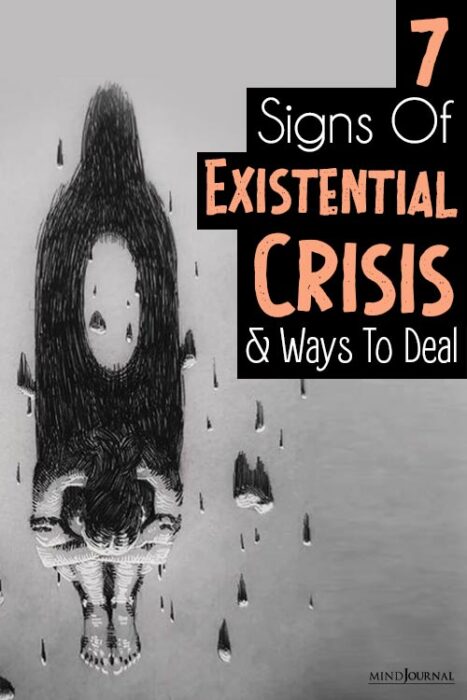
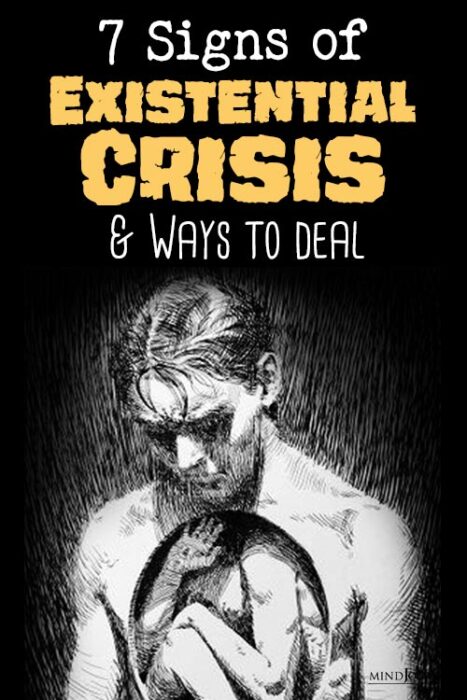
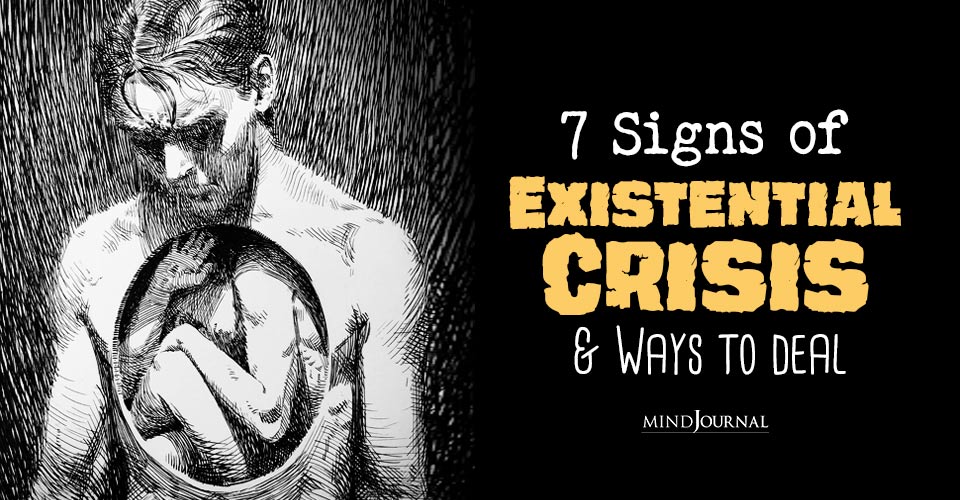







Leave a Reply
You must be logged in to post a comment.